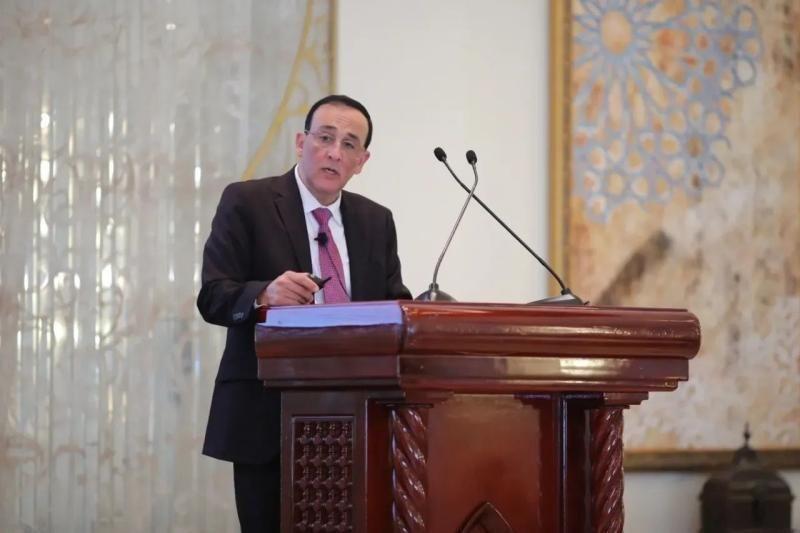(MENAFN- AzerNews)
 transport Hub Image' Width='242' Height='268'/>
transport Hub Image' Width='242' Height='268'/>
Ulviyya Shahin Read more
India intends to sign an agreement with Iran on the managementof the Chabahar port within the next ten years and connect it withthe International North-South Transport Corridor (INSTC), whereAzerbaijan is a significant transport hub. The Economic Timesreports about this.
According to the publication, Indian Minister of Ports,Shipping, and Waterways Sarbananda Sonowal will visit Iran onMonday to sign the agreement. This is the first time that India hastaken over the management of a foreign port.
The new contract will be valid for 10 years and will beautomatically renewed. In the future, it is planned to connectIndia to the INSTC through Chabahar port.
This trade route is intended for the transportation of goodsfrom India and the Persian Gulf countries through the territoriesof Iran, Azerbaijan, and Russia, as well as connecting the railwaysof these three countries to Western and Northern Europe.
The main advantage of the corridor is the reduction of cargodelivery time by two to three times. Chabahar port is located inthe southeast of Iran. In 2003, India and Iran agreed to jointlydevelop the port, but the project was later shelved due tointernational sanctions against Iran.
During his visit to Tehran in 2016, Indian Prime MinisterNarendra Modi announced his intention to invest $500 million intothe construction of the port infrastructure of New Delhi.
In May 2016, India signed a tripartite agreement with Iran andAfghanistan for the construction of the Shahid Beheshti terminal atthe port.
Several questions arise: What is thesignificance of India's intention to sign an agreement with Iranregarding the management of the Chabahar port? How does connectingthe Chabahar port with the International North-South TransportCorridor (INSTC) benefit India and other countries involved? Whatwill be the profit of Azerbaijan in this matter? Against thebackground of the position of India and Iran against Azerbaijan, inwhat direction can the situation change economically andpolitically?
While answering questions for Azernews , Britishexpert Neil Watson thought that this move wasextremely significant.

"It is the first move by a westward-facing country - India - toactually work with Iran, which is usually considered a pariahstate. Furthermore, it signals Iranian trust in a country that hasexcellent relations with the US and is a significant constituentpart of the BRIC nations, which are shaping the new world economy also indicates that Iran no longer considers Russia to be itssaviour and default partner, particularly in light of its ongoingdistraction with Ukraine and the ramifications of that."
According to him, the benefits to India and other countries -both regarding imports and exports - are absolutely huge.
"The INSTC has already minimised the transportation time forChinese products and India and the other countries involved willbenefit from reduced transportation time and logistical economiesof scale. However, conversely, it benefits India, Persian Gulfcountries, and Azerbaijan, as their products can be easily bedistributed far beyond their traditional territory, even intoEurope. This comes at a time when demand for hydrocarbons ischanging and ultimately reducing and the need for all oil-richcountries to diversify their economies is pressing."
Watson noted that the benefit to Azerbaijan is the ability toimport goods from China, India, and other countries moreeffectively, thereby increasing the range available in the countryand ultimately reducing prices. Also, Azerbaijani goods can beexported far and wide very easily with optimised logistical costs,thereby making them competitive on the world stage.
"In my view, this signals a thaw in the challenging Azerbaijani-Iranian-Indian relationship. India and Iran have been underSoviet/Russian/Armenian influence for decades, but given Armenia'sdefeat and Russian withdrawal from the South Caucasus, it is timefor these countries to work together and cohesively on a businessfooting. This can only serve to ultimately enhance diplomaticrelations," the British expert concluded.
But Dr. Frank Musmar , Executive Advisory BoardPresident for the University of Maryland Global Campus, an advisorymember at the Abrahamic Accord Business Circle, and a Board Memberat Paris Metropolitan University, highlighted India's adoption of astrategy akin to China's earlier "string of pearls" by investing instrategic ports overseas.

"This strategy will enhance India's global strategic presenceand maritime access. India has secured investments in ports inIran, Sri Lanka, Myanmar, and Oman and is planning to invest in thePhilippines. The Indian Minister of Ports, Shipping, and Waterways,Sarbananda Sonowal, and the Iranian Transport and Urban DevelopmentMinister, Mehrdad Bazrpash, signed the 10-year contract. The planis to connect India to the INSTC through Chabahar port, whereAzerbaijan is a significant transport hub, to reduce the cargoshipping cost and delivery time by two to three times.
The instability caused by the ongoing war in Gaza and Houthiattacks on ships transiting the Red Sea has put the projectedIndia-Middle East-Europe Corridor (IMEC) on hold until furthernotice. India seems to be reassessing its position withininternational transport routes in this context. Attention is nowturned towards an 'old acquaintance': the International North-SouthTransport Corridor (INSTC).
Among the ports that were projected to connect on the west coastof India are Mundra (Gujarat), Kandla (Gujarat), and JawaharlalNehru Port Trust (Navi Mumbai). In the Middle East, at least fiveports have been shortlisted to be connected to the Indian ports,including Fujairah, Jebel Ali, and Abu Dhabi in the UAE and Dammamand Ras Al Khair ports in Saudi Arabia. "Multiple routes are beingconsidered to reduce the freight load on one route prospectively, and if the situation calms down in the Middle East,India could utilise the Chabahar port to pursue the immature planof the India-Middle East-Europe Corridor (IMEC) without needingother ports."
Dr. Frank Musmar recalled that the port of Chabahar is locatedon the Makran coast of Sistan and Baluchistan Province, next to theGulf of Oman and at the mouth of the Strait of Hormuz.
"It is the only Iranian port with direct access to the IndianOcean. Being close to Afghanistan and the Central Asian countriesof Turkmenistan, Uzbekistan, and others, it has been termed the"Golden Gate" to these landlocked countries. To India, it is theperfect plan to access markets in Central Asia, Afghanistan, andEurasia while bypassing its rival, Pakistan.
As for the other countries in the region, the INSTC will bridgedifferent regions and pursue the intra-regional development ofenergy-rich countries. Its significance has grown immensely,particularly after the Ukraine war. Moscow and Iran could use theINSTC as a potentially vital economic escape route into the largerAsian region to circumvent Western sanctions prohibiting specificgoods."
Dr. Musmar asserted that the modern India-Azerbaijanrelationship is built on cultural and economic ties thatmaterialised via the ancient Silk Route.
"Azerbaijan became part of INSTC in 2005, and its well-developedrailways and a strategic seaport in Baku paved the way for theWestern Route of INSTC that runs west of the Caspian Sea. TheWestern Route links the Iranian ports of Chabahar and Bandar Abbasin the Arabian Sea to the vast railway networks in Eurasia,especially with the Baku-Tbilisi-Batumi or the Baku-Tbilisi-Karstransnational rail connections constructed under the Trans-CaspianInternational Transport Route, which makes the Western Corridor ofINSTC via Azerbaijan the most critical strategic part of the entireproject for India."
"India recognised Azerbaijan's independence in 1991, and India'sbilateral trade with Azerbaijan has been growing steadily in recentyears. As for Iran, Iran and Azerbaijan will defuse the tensionsand change rhetoric. The construction of a cargo terminal inAstara, on the Caspian Sea next to the Azeri border, by the end of2024 and the latest development in the INSTC will help bridge thedisagreements. The prize is clear: an opportunity to put asidetheir differences and tone down tensions to reap geo-economicdividends," Dr. Musmar added.
MENAFN15052024000195011045ID1108214319